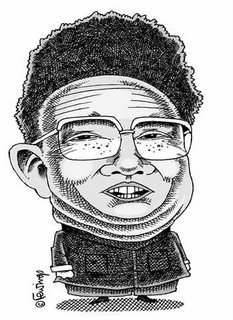Isolation is not a policy

The old Cuban/Cold War/Isolationism foreign policy paradigm is not only outdated but bolsters and reinforces totalitarian regimes. The ‘getting tough’ with tyrants by keeping them isolated is incredibly stupid and counterproductive, which is a hallmark for the current administration. For example, Sec. Rice “advocates ‘deepening the isolation of Syria,’ … and in seeking to isolate Iran, … she hopes to capitalize on the fears of nations like Saudi Arabia, Egypt and Jordan that Iran seeks to dominate the region with the option of wielding a nuclear weapon,” this according to David E. Sanger. The cornerstone of this ‘do-nothing’ strategy is isolation. However, nations with authoritarian regimes want to be isolated. It is their lifeblood. Isolation gives these regimes safety and more importantly stability. This notion of stability versus openness is not a contest for which any tyrannical regime is looking to play. Iran, North Korea, Egypt, Jordan, Sudan, Zimbabwe and Syria, just to name a few, would rather be closed than open. Openness leads to instability and upheaval, developments for which most autocratic governments do not see as beneficial. So James Baker not only up staged Sec. Rice, with his work on ISG, he also revealed a key to opening up the region (any region): talks. Sec. Rice on the other hand is still stuck in the old mold of isolation.
This process of stability v. openness is clearly described by Ian Bremmer in his new work The J Curve. Bremmer using case studies from North Korea, Cuba, Iraq and China gives a clear and useful message to policy makers: open up the country in what ever fashion we have at our disposal. Anything will help dismantle the regime from the inside out. The use of radio transmission or diplomats can only help produce questions for the masses in these countries, questions for which only free thought can answer. A foreign policy based on massive assaults of international talks and endless influence within the country, J. Nye's Soft Power, is not only proper in this world of transnational terrorists and rouge states it is imperative. Engagement is not a sign of weakness or capitulation; it is a sign of shrewd foreign policy.


0 Comments:
Post a Comment
<< Home